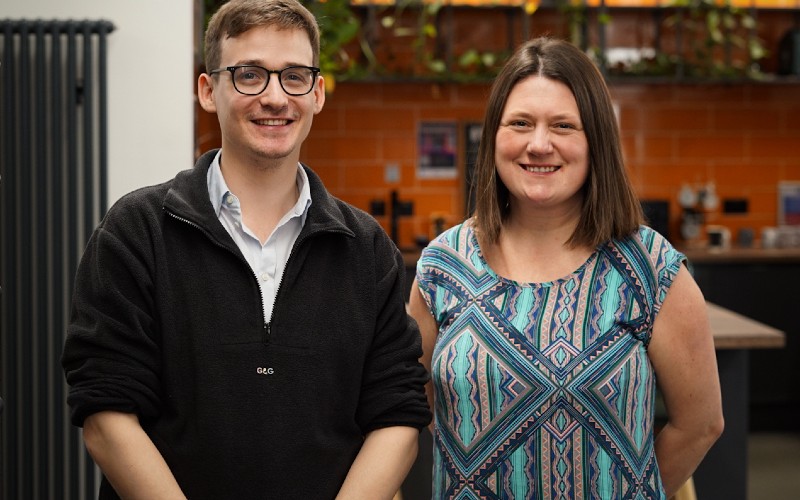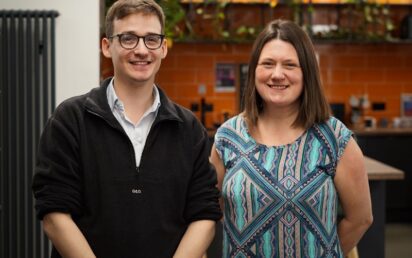Lancashire County Council has bolstered its innovation team with two key new appointments.
Claire Lambert who joins from Active Lancashire, will take on the role of marketing project officer.
Prior to her time at Active Lancashire, where she was head of engagement and partnerships for the Business Health Matters programme, Lambert spent nine years leading on marketing and events for the North West Aerospace Alliance (NWAA).
Tom Whiley, who previously worked in business development at the Lancaster-based technology consultancy Northern Reach, has joined as monitoring and evaluation project officer.
The pair will support LCC’s delivery of the Lancashire Innovation Plan (LIP).
Described as a ‘blueprint for growth’, and developed by LCC in partnership with Lancashire Enterprise Partnership’s Innovation Board, the LIP is focused on maintaining, strengthening, and extending Lancashire’s world-class capabilities in innovation-led sectors such as aerospace, advanced manufacturing, energy and chemicals.
The plan also outlines the need to maximise and broaden the county’s R&D offer, and exploit new opportunities in emerging markets including ElecTech, cyber, the digital industries, health, and low carbon.
In addition, there are specific interventions designed to maximise assets like the National Cyber Force HQ, the AMRC North West, UCLan’s Engineering Innovation Centre, and Lancaster University’s Health Innovation Campus, as well as a proposal to establish a Lancashire Innovation Observatory to monitor, anticipate and evaluate new commercial opportunities.
LCC’s innovation team, which is led by Maya Ellis, has also been leading the development of a new £6m innovation hub at Samlesbury.
Capitalising on the technology assets already based in the area, including AMRC North West, BAE Systems, and the incoming NCF headquarters, this would be a cross-sector facility designed to facilitate more ideation, innovation and collaboration within a range of high value, high growth industries.
Another key initiative led by LCC’s innovation team has been the development of FHundED.
Led by Rory Southworth, who also runs the Fraser House co-working space in Lancaster, FHundED brings investors and venture capitalists together with Lancashire tech startups and scaleups looking for investment.
The success of both FHundED and Fraser House has seen Southworth promoted to the newly created role of innovation ecosystem manager.
Maya Ellis, LCC’s innovation programme lead, said: “Innovation is widely recognised as a key driver for regional economic growth. By strengthening our team in areas like marketing and evaluation, and widening Rory’s remit so he can take his FHundED and Fraser House experience to other parts of Lancashire, we can ensure we take full advantage of every opportunity which comes Lancashire’s way.
“With more capacity, we will also be able to support potential new capital developments such as the proposed £6m innovation hub at Samlesbury, alongside existing investments already in the pipeline like the National Cyber Force HQ.”
The £6m innovation hub at Samlesbury is one of several innovation-led projects which are set to be funded through Lancashire’s devolution deal with Government, should it be approved.
Other schemes outlined in the county’s devolution proposals include Blackburn with Darwen Council’s £6m Blackburn Technology Innovation Quarter; a dynamic business space which would help support the growth of digital and creative sectors in East Lancashire; and Blackpool Council’s £6m Low Carbon Data Demonstrator Centre, which would be located at Blackpool Airport Enterprise Zone.

